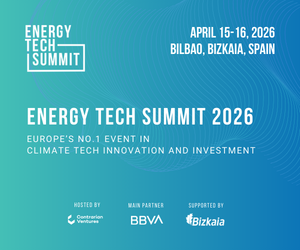Search - Search on Articles, Blogs & Tags
Total Results : 362
Zimbabwe plans to build solar power panel manufacturing plant
- 2026-02-09 06:14:33
- David Flin
Zimbabwe has announced plans to build a solar power panel manufacturing plant, marking a shift in its energy and industrialisation strategy. The plan hopes to attract foreign investment into renewable energy and clean technologies while building domestic clean energy production capacity.
UK to invest £350 million to develop Ethiopia’s grid network
- 2026-02-04 06:30:59
- David Flin
The UK investor Gridworks has signed agreements to develop and finance around £350 million in electricity transmission projects in Ethiopia. The projects are the first public-private partnerships in Ethiopia’s transmission sector.
Nigeria hands over 6 MW Ikere Gorge Dam in Public-Private Partnership agreement
- 2026-02-03 05:56:09
- David Flin
The Nigerian Government has officially handed over the 6 MW Ikere Hydropower Plant, located in Iseyin, Oyo State, Nigeria, to Quaint Power and Infrastructure Nigeria under a Public-Private Partnership (PPP) agreement.
CCECC to build 7 MW floating solar plant at University of Lagos
- 2026-01-22 06:25:46
- David Flin
China Civil Engineering Construction Company (CCECC) has won a contract to build a 7 MW floating solar power station for the University of Lagos (UNILAG) in Nigeria.
Sudan to get Chinese transformers for war-damaged grid
- 2026-01-21 06:24:44
- David Flin
Sudan’s Energy Ministry has announced that China’s Siyuan Energy Company will supply transformers and mobile power stations to repair infrastructure in Sudan damaged by the country’s civil war.
Zimbabwe upgrades Hwange coal-fired power plant to add 400 MW to grid
- 2025-12-30 06:05:26
- David Flin
Cletus Nyachowe, Acting CEO of ZESA, has announced that Zimbabwe will add 400 MW to its power grid as a result of a $455 million upgrade of the Hwange coal-fired power plant.
Egypt and Djibouti jointly launch Omar Jagaa solar power plant
- 2025-12-29 06:34:34
- David Flin
Egypt and Djibouti have jointly inaugurated a 300 kW solar power plant in Omar Jagga village in Djibouti’s Arta region, strengthening bilateral cooperation between the countries.
African Development Bank approves grant for Malawi’s hydropower infrastructure
- 2025-12-11 06:50:52
- David Flin
The African Development Bank (AfDF) has approved a grant of €22 million for the rehabilitation of Malawi’s Kapichira and Nkula B hydropower plants. The rehabilitation of the plants will cost a total of €110 million.
Kenya’s electricity demand hits all-time high, straining capacity
- 2025-12-09 06:34:04
- David Flin
Demand for electricity in Kenya has hit a new record high, driven by a surge in domestic and commercial consumption that places pressure on the country’s stretched power generation capacity.
Egypt and Japan partner to develop 20 MW solar and storage project
- 2025-12-02 05:53:46
- David Flin
Egypt has announced a new collaboration between the New and Renewable Energy Authority (NREA) and an Egyptian-Japanese consortium to build a combined 20 MW solar power plant and a 30 MWh battery energy storage system (BESS) in Hurghada on Egypt’s Red Sea coast.












